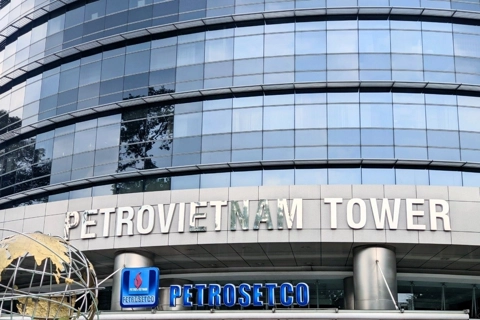Econ
McDonald's struggles with competition in Vietnam
Sep 20, 2018 / 10:40 PM
Failure to capture the attention of the Vietnamese market was odd given that foreign burger chains had previously been met with success when expanding in Asian countries.
In Vietnam, a country spoiled for choice when it comes to food, US fast food chains such as McDonald’s and Burger King are struggling to compete with the local competition, according to CNBC.
Far from meeting initial targets
The fast food industry thrives in most of the world. Chains like McDonald's and Burger King typically come out on top in the US$651 billion fast food industry.
In Vietnam, however, the brands have failed to take off. There was a lot of hype with McDonald's first opened its doors in Vietnam in 2014. The launch drew crowds of locals who waited hours to get their hands on a Big Mac. But fast-forward to today and the hype has slowed way down.
McDonald's now has only 17 stores in Vietnam after four years of presence, and Burger King, which entered the market in 2011, has just 13 as of 2018. Failure to capture the attention of the Vietnamese market was odd given that these burger chains had previously been met with success when expanding in Asian countries.
McDonald's has seen tremendous growth in countries like China and Japan, where it has thousands of storefronts in both countries.
And Burger King has grown its franchise in Japan from 12 restaurants in 2008 to 98 last year.
McDonald's has ranked second out of all foreign fast food in mainland China behind KFC, and Burger king was ranked fourth.
However, Vietnam was a different story. When McDonald's entered the Vietnamese market in 2014, it planned to open a hundred stores in Vietnam within 10 years. The same thing happened to Burger King, which invested US$40 million in Vietnam in 2012, with the goal of opening 60 restaurants by 2016 according to Vietnam Business Review.
Struggling to compete with local competitors
Hao Tran, cofounder of website Vietcetera, told CNBC that fast food in the US is popular because customers can get it right away. However, Vietnamese food is the same thing, if you go to street vendors, you can get your bowl of pho or banh mi also may be even faster than McDonald's. So that factor defeats the value proposition of fast-food in Vietnam, he added.
Andrea Nguyen, chef and author, added, Vietnamese have banh mi sandwiches, and those sandwiches are sold on the streets at rock-bottom prices compared to McDonald's and Burger King.
According to the European Commission, Vietnamese consumers dedicate a sizeable portion of their income to food, and of that money spent on food, 78% went to local vendors street stalls and kiosks. Just 1% went towards fast-food restaurants in Vietnam.
Vietnam's food service sector has over 540,000 outlets, over 430,000 are local vendors and food kiosks. There is nearly 80,000 full service Vietnamese restaurants and almost 22,000 bars and cafes.
But as for fast-food chains, they account for just over 7,000 outlets in Vietnam. Fast-food chains are so outnumbered in Vietnam.

Illustratiave photo.
|
The fast food industry thrives in most of the world. Chains like McDonald's and Burger King typically come out on top in the US$651 billion fast food industry.
In Vietnam, however, the brands have failed to take off. There was a lot of hype with McDonald's first opened its doors in Vietnam in 2014. The launch drew crowds of locals who waited hours to get their hands on a Big Mac. But fast-forward to today and the hype has slowed way down.
McDonald's now has only 17 stores in Vietnam after four years of presence, and Burger King, which entered the market in 2011, has just 13 as of 2018. Failure to capture the attention of the Vietnamese market was odd given that these burger chains had previously been met with success when expanding in Asian countries.
McDonald's has seen tremendous growth in countries like China and Japan, where it has thousands of storefronts in both countries.
And Burger King has grown its franchise in Japan from 12 restaurants in 2008 to 98 last year.
McDonald's has ranked second out of all foreign fast food in mainland China behind KFC, and Burger king was ranked fourth.
However, Vietnam was a different story. When McDonald's entered the Vietnamese market in 2014, it planned to open a hundred stores in Vietnam within 10 years. The same thing happened to Burger King, which invested US$40 million in Vietnam in 2012, with the goal of opening 60 restaurants by 2016 according to Vietnam Business Review.
Struggling to compete with local competitors
Hao Tran, cofounder of website Vietcetera, told CNBC that fast food in the US is popular because customers can get it right away. However, Vietnamese food is the same thing, if you go to street vendors, you can get your bowl of pho or banh mi also may be even faster than McDonald's. So that factor defeats the value proposition of fast-food in Vietnam, he added.
Andrea Nguyen, chef and author, added, Vietnamese have banh mi sandwiches, and those sandwiches are sold on the streets at rock-bottom prices compared to McDonald's and Burger King.
According to the European Commission, Vietnamese consumers dedicate a sizeable portion of their income to food, and of that money spent on food, 78% went to local vendors street stalls and kiosks. Just 1% went towards fast-food restaurants in Vietnam.
Vietnam's food service sector has over 540,000 outlets, over 430,000 are local vendors and food kiosks. There is nearly 80,000 full service Vietnamese restaurants and almost 22,000 bars and cafes.
But as for fast-food chains, they account for just over 7,000 outlets in Vietnam. Fast-food chains are so outnumbered in Vietnam.









